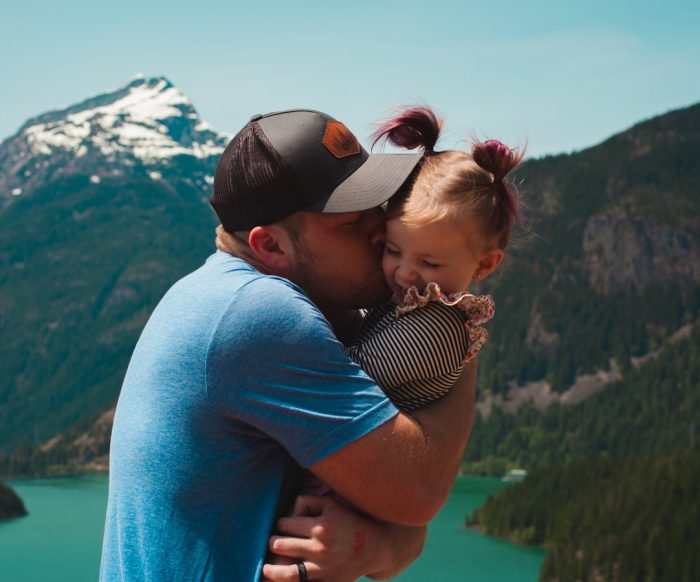You’re not rich. You’re not famous.
They don’t see you on television or read about you in their newsfeeds.
You haven’t done anything particularly noteworthy in the eyes of the world. But you’re good at what you do and are paid well in the heart for it.
You get up every morning and go to work, doing the same thing you’ve been doing for years. Maybe that’s boring, but you’re reliable, and that’s important to the people who rely on you.
You’ve sacrificed a lot over the years for your family. Your time. Your freedom. Maybe even your dreams. But you don’t complain about it or seek credit because you understand it’s about choices and this was your choice—you are only doing what a man is supposed to do.
You come from a long line of good men: your father, your grandfather, your great-grandfather, brothers, uncles. Men who worked hard and took pride in their work and never walked away from their responsibilities.
It was their example you learned from. To do your job and do it well and take care of your own.
It’s a heavy load, though—the bills, the obligations, everyone with their hand out and waiting for you to deliver. Sometimes you just want to throw it all off, but you don’t because you plowed this ground, and a good man does not abandon the field he’s planted.
Besides, you revel in it, this field of weeds and tangles. To come home from work every day to these creatures who are so dependent on you, even though they don’t realize it.
Really, all you need sometimes is some space to clear your head. To retreat from the field of duty into your cave and drink from the spring and be replenished.
Your spouse doesn’t always get your need for the cave. Maybe she’s even a little afraid of it. But she doesn’t have anything to worry about. The cave isn’t competing with her. It’s the separation you seek, from all of the noise, the responsibilities. It’s just for a little while, and then it’s back to the field, to take up your plow again.
You sometimes wonder what might have been if only you had taken a different path. If only you’d had the courage, the confidence and education—whatever it is that more successful men have that have led them to fame, riches, and positions of great power.
But you try not to dwell on any of that because the past is gone. What’s done is done, and what good does it do to think about such things? Regret is a poison that only makes you feel bad, and you don’t have time for that. The field needs tending, and the day’s a-wasting.
You’re not perfect. Oh, how imperfect you are. There are things about yourself that you’ve been trying to change for years. It mystifies you, why you can’t do it, why these same character flaws come up again and again to foil you. You fix things all the time—at work, at home, for your spouse, for your kids. Why can’t you do it for yourself?
You used to beat yourself up for this. Flog yourself like a horse hitched to your plow. But you try not to do that anymore. You know from personal experience how important it is to accept yourself (warts and all) because the opposite is pure living hell. You are determined to pass that important lesson onto your kids, so, hopefully, they don’t have to go through it themselves.
You hear things that make you rage inside. Men using their positions of power to take advantage of young women and boys. The fellow cop who knelt on an unarmed black man’s neck as he called out for his mother as if he was an animal.
You would never think of doing such things. It was not how you were brought up. Yet when you go out into the streets to do your job, you see the hate and distrust in people’s eyes, and it makes you sad, though you understand it.
You know, in the end, that your job is not who you are. It’s something you do. It’s a means to an end.
Who you are, what you are, is a father. There’s no clocking out of that job at five o’clock on Fridays. You are always out in that field of duty, hoe in hand, tending to your garden.
You take great pride in seeing your children grow and bloom in the field you have prepared for them—knowing you had something to do with it. Your eyes tear up when you see them celebrate their milestones. Birthdays. Proms. Move-in day. Graduations. First job. First house.
You’re not good at expressing how you feel. Your father wasn’t either, or his father. But that doesn’t mean you feel any less than your spouse.
You want to reach out and hug your son. And sometimes you do, and both of you feel a little funny about it afterward. It’s like you broke some rule in the book of “being a man,” though you’ve never read that book and aren’t sure who wrote it in the first place.
You gave your father a card every Father’s Day, and shook his hand, and told him thanks, and that never felt like enough to you for all he’d done, but it was all you knew how to do.
You held his hand as he lay dying, something you had never done while he was alive, and you felt in that embrace all that lay unexpressed between you—the love, the admiration, the gratitude—and it was okay, because you know he felt it too.
And you hope that when your time comes, they will be there to hold your hand too, and that will be your legacy, and it will be enough.











Read 3 comments and reply